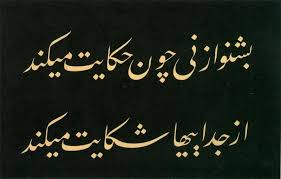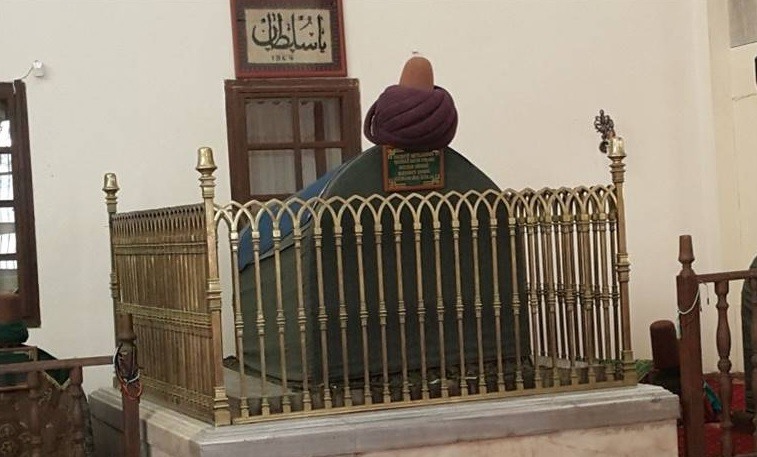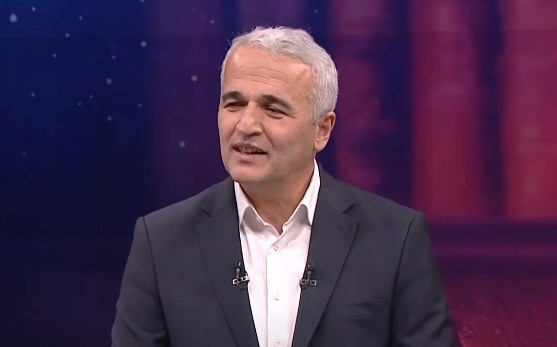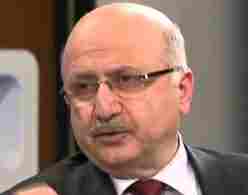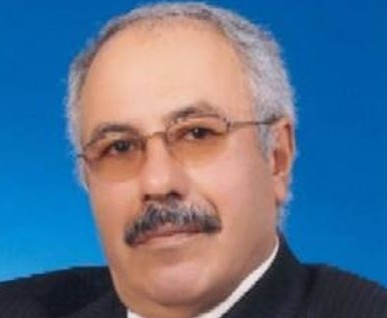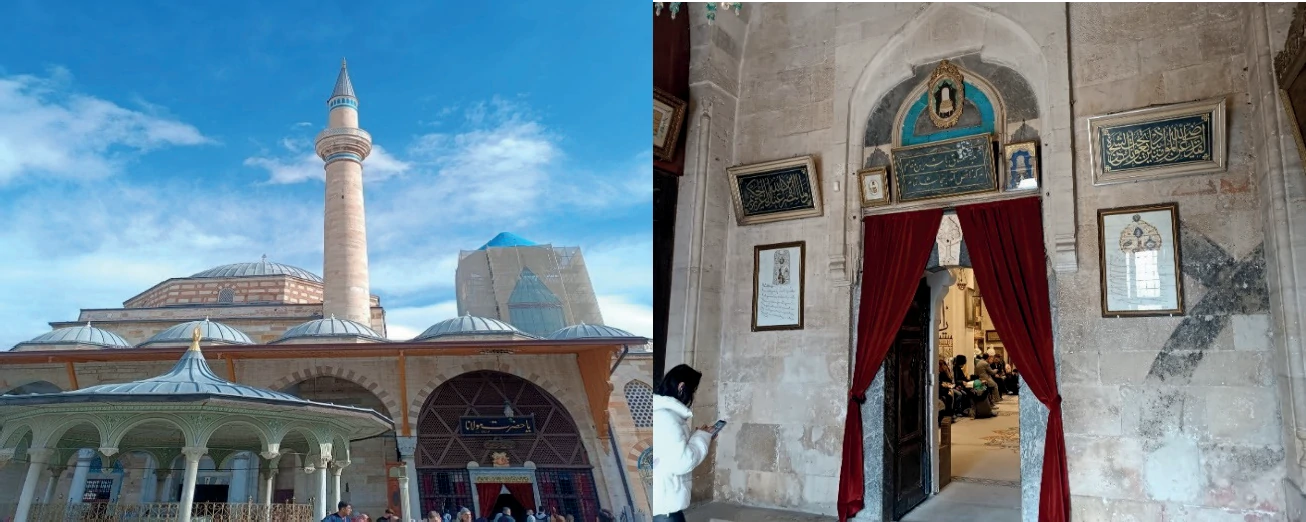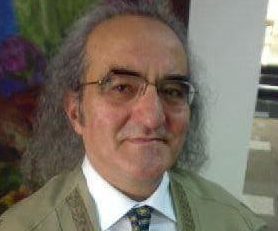RUMI’S APROACH TO HUMAN RIGHTS AND FREEDOMS
RUMI’S APROACH TO HUMAN RIGHTS AND FREEDOMS
Mevlana’nın İnsan Hakları ve Özgürlüklere Yaklaşımı
Dr. Ergin ERGÜL *
ABSTRACT
From the 13th century to the present day, Mevlânâ Celâleddin Mohammed has continued to guide whosoever wants to know himself/herself, to understand the meaning of life and to find the truth. Rumi is, without doubt, one of those universal personalities whose biographies, works and world of thought are deeply analysed. Especially the Masnavi, the most renowned work of Rumi, is a unique piece which enables us to understand his immense world of thoughts. It has been known that humanity, justice and freedom have an important role in his system of thought.
It is a well-known historical fact that instability, conflicts and human rights violations were extensive in the world, especially in Anatolia in the 13th century, the period during which Rumi lived. When his life, social relations, close contacts with administrators and scholars and the universality of his messages are taken into consideration, it can be concluded that his opinions may be helpful to find solutions to universal problems that communities and humanity face today. And the protection and development of human rights and freedoms certainly rank first among these issues. However there is not sufficient academic research on the lawyer and thinker identity of Rumi, who was a versatile wise man, and the reflection of his identity on his books.
Therefore, this study aims to reveal the perspective of Rumi on human rights and freedoms, which are among the most important fields of interest for lawyers and political scientists of our age and how we can benefit from this different point of view in today’s world.
Key Words: Rumi, Masnavi, human rights, freedom.
ÖZET
Mevlânâ Celâleddin Muhammed 13. yüzyıldan beri kendini tanımayı, hayatın anlamını anlamayı ve gerçeği bulmayı isteyenlere kılavuzluk etmeyi sürdürmektedir. Mevlânâ, hiç kuşkusuz, yaşam öyküsü, eserleri ve düşünce dünyası en fazla incelenen evrensel şahsiyetlerden biridir. Özellikle de Mevlânâ’nın en bilinen eseri olan Mesnevi, onun geniş düşünce dünyasını anlamamıza yardımcı olan eşsiz bir çalışmadır. Özellikle insan sevgisinin, adalet ve özgürlük kavramlarının onun düşünce sisteminde çok önemli bir yeri olduğu bilinmektedir.
13. yüzyıla denk gelen Mevlana’nın yaşadığı zaman diliminde dünyada ve özelde de Anadolu’da istikrarsızlık, çatışmalar ve insan hakları ihlallerinin yaygın bir hal almış olduğu bilinen bir tarihi olgudur. Onun hayatı, sosyal ilişkileri, yöneticilerle ve bilginlerle yakın temasları ve eserlerindeki mesajların evrenselliği göz önüne alındığında, onun görüşlerinden çağımızda toplumların ve insanlığın karşı karşıya kaldığı küresel sorunların çözümü için yararlanılabileceği akla gelmektedir. Bu konuların başında ise hiç kuşkusuz insan hakları ve özgürlüklerin korunması ve geliştirilmesi gelmektedir. Ancak çok yönlü bir bilge olan Mevlana’nın, hukukçu düşünür kimliği ve bu kimliğinin eserlerine yansımaları üzerine yeterli ölçüde akademik çalışma mevcut değildir.
Bu noktadan hareketle, çalışma günümüzde hukukçuların ve siyaset bilimcilerin en önemli ilgi alanlarından olan insan hakları ve özgürlükler konularına Mevlana’nın bakışını ve bakıştan günümüzde nasıl yararlanılabileceğini ortaya koymayı amaçlamaktadır.
Anahtar Kelimeler: Mevlânâ, Mesnevi, insan hakları, özgürlük
¨¨¨¨
INTRODUCTION
Mawlana Jalaluddin Rumi, better known in the west as Rumi, is one of the greatest sages, universal thinkers, spiritual masters and mystic poets of all times. From the 13th century to the present day, he has continued to guide whosoever wants to know himself/herself, to understand the meaning of life and to find the truth. Besides being an excellent guide for personal development, he is also a perfect source of inspiration in terms of social development and finding solutions to universal problems. Rumi’s influence crosses cultural and national boundaries.
The basic messages that were derived from his thoughts hundreds of years ago and that shaped the humanity are main reasons behind his immortality.1 Today, the points put forward as fundamental or global values with the aim of solving the mounting problems of this age render the value, importance and difference of these messages much more clear and comprehensible. 2
We can observe that in the social sciences, people make use of Rumi extensively especially in the fields of psychology and psychotherapy. But the same cannot be said for the fields of law, politics and administration. In fact, Rumi has many things to say about the understanding of this age and he can make great contributions in these fields. This is because in his works he addresses the unchanging essence inside people and expresses the basic and universal values of society. What he calls ‘justice’ in his works is called ‘state of law’ or ‘rule of law’ in our age. Many actions that he regards as ‘cruelty’ from which he tells people to refrain are called ‘violation of human rights’ today. Many issues that he suggested are currently called ‘good governance’. Even though the adverbs and nouns change, the content is comprised of the same immutable values.
Human dignity and social justice are at the centre of his world of thoughts. He became Mawlana (namely master), lover and master of not just a small group around him but of everyone as he defended human rights without any discrimination, and struggled for the prosperity of the people and for fair and good governance. In this respect, Rumi is not only the poet of love, which is the source of every movement in the universe, the vigour that reaches from the atoms to the galaxies and the dynamism, but he is also the poet of social life and justice which is the foundation of the state. In spite of the soul of the odes, in some of his poems he deals with social issues, criticizes the corruption of administrators and judges and mentions of the uprising against injustice and the value of freedom. Furthermore his understanding of improvement is based on the freedom of human soul. Hence, the poet of justice, freedom and love is the best title to describe him.
I. FREE PEOPLE
Freedom and justice are the fundamental and universal elements that people have been in search of since the beginning of history. However, only the existence of the both can help people reach their aims and desires like a bird with two wings. In this context, one should remember the following words of Rumi: Do not attempt to fly without a wing! He also says: You will have two wings to fly – not one.
Rumi is a real free spirit with his words and way of life. He also describes himself as “a free sea”:
I’m a sea,
Overflowing from its existence itself,
A sea endless and limitless, And vast as much as possible, Without any coast, a free sea.3
Indeed, as highlighted in one of his lyrics;
River water is sweet, but it can never be compared to the grandeur of the sea. How can be comparable becoming a minister for a president with getting rid of all restrictions and all bonds and being a free man!4
In another rubai, he relates that he would never swap his freedom for slavery:
As long as my bowl of buttermilk is in front of me,
By God, I have no leaning on anybody’s honey.
Even if poverty threatens me with death,
I would never sell my freedom in exchange for slavery.5
He describes gracious people like himself as “more cheerful than rose6 and “freer than cypress”.7 Because according to him:
All the people who are walking in the way of love are sultans. There is no place there for servants. Anyone who loves Allah never can become a servant of another person.8
In one of his lyrics, he states:
How beautiful is a country of freedoms which is not under the command of anybody.9
Furthermore he encourages people to be free individuals, act freely and not to let the natural freedom of their minds be damaged. He says in the Masnavi:
Break your bonds, be free, my child!10
Show yourselves to be “free” (pure and noble) as the cypress and the lily.11
March free like a horse! 12
Nurettin Topçu (1909-1975) describes the ideal person Rumi looks for as follows: A completely free man who gets rid of all records is the ideal person he is looking for.13
Rumi explains this in the following lines;
Be the slave of someone whose heart glitters Instead of wearing the crown of the Sultans.14 And he makes this wonderful remark:
What (how great), indeed, is the strength of the blind conformity of the vulgar! 15
He recommends thinking freely and independently, instead of being a person shepherded in a mass of people. In another couplet from the Masnavi he says:
If you will watch, get into the habit of watching without imitating anyone… If you will think, then think with your own mind! 16
He believes that something will be valuable as long as it is realized in freedom. Rumi, who tries to see the freedom in the inner world of people, argues that being tied to something with fake and temporal ties will harm the freedom of a person. He thinks that freedom, which he describes as being saved from internal and external ties, is very important for thinking.17 Therefore he clearly puts forward that a person failing to be free in his internal world cannot resist the pressure on his external freedom and can defend neither his own nor other people’s rights and freedoms.
Let’s see how he dignifies the people with free thoughts in one of his rubais:
Those whose hearts are free Have a different soul,
Pure jewel excavated from a different mine.18
His free heart meets a pure pearl in another rubai:
If the heart is free, it beats in a totally different soul,
All pure pearls are in different mine.19
Only a free person is worth following which he emphasizes saying:
If you find a free person, stick to him;
Because a free person is quite unique in this world.20
II. FREE SOCIETY
Rumi has a pro-freedom and anti-prohibition approach in the social and legal fields. According to his approach, the essence is independence. When there are prohibitions, people are much more attracted to the things that are prohibited. If the outcome desired to be achieved through prohibition does not occur, introducing prohibitions on a specific issue will bring damage instead of benefit. He emphasizes this truth saying;
People are passionate for whatever they are denied.21
He explains in the Fihi Ma Fihi:
For instance, take a loaf of bread, put it under your arm, and deny it to others, saying, “I will not give this to anyone. Give it? Why, I won’t even show it.” Even if that loaf had been cast away and the dogs would not eat it because bread is so plentiful and cheap—yet the moment you begin to refuse it, everybody is after it and sets their hearts on it, pleading and protesting, “We want to see that bread which you refuse and keep hidden.” Especially if you keep it hidden for a year, insisting emphatically that you will neither give it away nor show it, their eagerness for the loaf passes all bounds, since, “People are passionate for whatever they are denied.22
It is widely known that prohibitions make the problems that could be easily solved by other humanitarian methods much more complicated. Indeed, it has been observed that prohibitive policies brought by ideological approaches in many countries in recent past caused many social problems whose effects can still be felt today.
History is witness to the fact that dictatorships and totalitarian regimes where prohibitions were common could not be long-lasting in their aims.
The aim should not be prohibiting a practice that is adopted by people but not welcomed by intellectuals and administrators; but instead it should be bringing an alternative to people in the fields of poetry, music and dance as Rumi did. His poetry, ney and sema will continue to attract attention as long as the world stands.
III. HOLISTIC HUMAN RIGHTS
After putting forward Rumi’s approach to free people and a free society, I deem it necessary to describe and explain his view on human rights as “holistic human rights” which surpass today’s understanding. Later I will try to explore his ideas on basic rights and freedoms ranging from the right to life to the freedom of religion and consciousness, which are recognized and protected under international instruments today, in accordance with the systematic order in European Convention on Human Rights.
The second half of the 20th century was a period when many important guiding and binding legal documents were adopted in the field of human rights at both universal and regional levels. These efforts were consolidated through judicial or semi-judicial mechanisms such as the United Nations Commission on Human Rights and the European Court of Human Rights. Finally, the largest international organization with the highest number of members (57 countries) after United Nations, the Organisation of Islamic Cooperation created an 18 member ‘Independent and Permanent Human Rights Commission’ in 2011.
Moreover, national human rights institutions have been established to examine the grievances related to human rights violations in many countries and the opportunity of individual application to supreme courts has been introduced.
Despite all these efforts, quite serious and common individual and massive human rights violations continue to exist in the world.
Even though the respect for human rights and basic rights and freedoms are issues that are most frequently brought up and emphasized on every occasion, the implementation reports of even the most democratic countries are not at all shining.
December 10, on which date the Universal Declaration of Human Rights was accepted in 1948, is celebrated as human rights day, and this week is celebrated as human rights week all over the world. As an interesting coincidence, the following week covers December 17 which is the day of Rumi’s migration to the world of eternity and is described as the wedding night by Rumi himself. So the week of human rights should also be a time to give voice to Rumi’s holistic human rights approach, besides upholding human rights in general. 23
Rumi’s holistic human rights approach is based on two foundations: a holistic approach to the people and the unity in multiplicity. First of all, from his point of view, a person is not just a simple, ordinary creature created from water and soil and solely consisting of flesh, bone and blood. A person is the heart of the universe. This understanding is at the centre of Rumi’s worldview.
Rumi not only regards a person as an earthly creature but also sees him/her as a spiritual being which has a special role within the social system. He does not see people as if they are formed by separate parts such as mind, soul, body and brain. He regards them as a whole and as a system like the universe with all their components whether they are visible or not.
There is another soul in your soul, seek out for it.
There is a treasury in the Mount Body, seek out for that treasury. O mystic who goes on! If you are really capable then seek.
Not outside, but seek what you are seeking for in yourself.24 You are neither water nor soil, but something else.
You are away from the world of clay, you are on a journey.
Our body is an irrigation trench, and your soul is eternal water (hot streams into it).
But, you will not be aware of either as long as you stay in yourself. 25
Whatever pearl you seek, there is a another pearl inside that pearl because all the atoms are saying, “There is a treasure hidden me.”26
Some philosophers also say “a person is microcosms, a small universe”. On the other hand, according to Rumi, who reviews people by taking into consideration the real entity, internal world and essence hidden inside them, each person is macrocosmos, a big universe. Rumi explains this in Masnavi saying:
Therefore in form you are the microcosm, therefore in reality you are the macrocosm.
Externally the branch is the origin of the fruit; intrinsically the branch came into existence for the sake of the fruit.27
If there had not been desire and hope of the fruit, how should the gar-
dener have planted the root of the tree?
Therefore in reality the tree was born of the fruit, (even) if in appearance it (the fruit) was generated by the tree.28
Rumi, in his works, repeatedly emphasized man’s superiority: “The aim of the creation of universe is man’.29
Secondly, according to Rumi, “The whole universe and all the people are like a single body”.30
Therefore it would not be an acceptable behaviour from the humanitarian perspective if the people, institutions or states with power and opportunities become indifferent to human rights violations in any part of the world.
While human rights theory of today ensures social and political equality between people, Rumi’s equality approach describes humans as beams radiating from one light source and drops of the same ocean. It regards humans as branches of the same tree. So it foresees an exact and integrated equality on both cosmic and physical terms. Every person has the same honour in front of God regardless of their physical characteristics, environmental, social and economic conditions. Efforts should be made for this understanding to be widely accepted between people in both social and political fields. And the necessary administrative, institutional and legal mechanisms should be created with this aim.
Rumi uttered every one of his words for humanity. The human being is the most honourable creature according to him. God created man meticulously, blew his own soul into him and dedicated food and other useful things on earth to him. His following superb quatrains express these thoughts of him very well:
You are more precious than heaven and earth.
What more can I say?
You do not know your own worth.31
You are another version of the divine book.
You are a mirror of the beauty of God that created the universe. Whatever exists in the World, it’s not outside of you.
Whatever you ask for, ask for it in yourself, seek it in yourself.32 You are the true transcription
Of the Archetype Divine.
A glass through which the Sun’s
Own loveliness does shine. Within, or without, Wherever it may lie, Accept every desire,
And declare, It is me!33
Man, no bigger than a kneading-trough (scooped in a log),
has surpassed (in glory) the heavens and the aether (the empyrean).34
(That spirit created) in the best proportion surpasses the empyrean: (that spirit created) in the best proportion is beyond (the range of) thought.
If I declare the value of this inaccessible (pearl), I shall be consumed, and the hearer too will be consumed.35
There is a life-force within your soul, seek that life.
There is a gem in the mountain of your body, seek that mine. O traveler, if you are in search of That
Don’t look outside, look inside yourself and seek That. 36
He cares about people as individuals regardless of any labels acquired after coming to this world. And he objects to behaviours causing people to be despised, be subject to discriminatory treatment and be treated as ‘others’ because different nationalities and religious beliefs. In this respect he says:
O you who are searching for fault in everything. Do not look down on anyone. God has a part of him in everyone regardless of their nationalities and religions. The people are the mirrors of God. 37
He thinks speaking different languages does not constitute a barrier or a reason for disintegration between people. On every occasion, he emphasizes that the discrepancies between people are just on the surface and the essence is human dignity;
As we, all people, come from pre-eternity, the common feelings of aspiration and desire for those times bring us together and make us a whole. However when the words start, we all call out to the Friend in different languages. All of us have the same feelings but different languages.38
According to him a person should not try to promote himself/herself by taking advantage of the deficiencies of other people or by searching for their mistakes, faults or mischief. She/he should give value to and behave towards everyone equally and recognize the essence hidden inside them. Whatever a person pursues, that thing becomes him/her. S/he identifies with what s/he searches for. In one of his rubais, Rumi says:
You are mine so long as you seek for the jewel in the mine, You are bread as long as you desire for a morsel of bread
If you understand this secret meaning, then you understand everything; You will be whatever you are looking for….39
IV. A UNIVERSAL ADVOCATE OF HUMAN RIGHTS
Rumi is also quite sensitive to torture and lawlessness or injustice, which are the opposite of justice. He is aware of the fact that the cruel and the oppressed may sometimes exchange roles and that everybody has the potential to be cruel. For this reason, he wants to raise the awareness of people who have the authority, high status or economic power etc. so that they do not take the role of the cruel.
He objects to arbitrariness, force, injustice and human rights violations on every occasion. He believes that those walking away from justice, being unfair or cruel will find justice sooner or later. The law will eventually call them to account for injustice. Because according to Rumi:
The iniquity of evil-doers became (for them) a dark well: so have said all the wise.40
Actually if people depart from justice and the supremacy of law, violate human rights and make the guilty innocent and the innocent guilty by relying on their temporary power, authority or impact, no matter what their political, judicial, administrative, marital or detective positions and duties are, they will certainly be cooking their own goose. According to Rumi, they will be digging their own dark wells into which they will fall in the future. Even though it seems everything is all right at present, it actually means that they continue to dig the wells they will fall into once completed. Because in parallel with the principle of universal justice, the heavier and bigger their cruelty and injustice are, the deeper will be the well they are digging:
The more iniquitous one is, the more frightful is his well: Justice has ordained worse punishment for worse sin.
O you who from iniquity are digging a well for others, you are making a snare for yourself.
Do not weave (a cocoon) round yourself, like the silkworm. You are digging a well for yourself (to fall in): dig with moderation (not too deep). 41
Following these assertions, Rumi reminds the cruel of divine justice and warns the dictator saying:
Deem not the weak to be without a champion: recite from the Qur’an (the words), When the help of God shall come.
If you are an elephant and your foe fled from you, lo, the retribution came upon you, birds in flocks! 42
If any poor man on the earth beg for mercy, a loud tumult falls on (arises among) the Host of Heaven.
If you bite him with your teeth and make him bleed, toothache will attack you—how will you do (then)?43
The power that the weak and victims rely on is the divine power, which is the source of all kinds of power. And when that power comes in to help, even the weakest individuals and nations unexpectedly defeat the strongest, the most strict and repressive dictatorships and superpowers. Both the recent and remote history are full of examples of this kind, aren’t they?
Again he warns the oppressive administrators, saying: Do not, then, bite the innocent with your teeth: bethink you of the stroke that is not to be guarded against.44
Rumi stands against any kind of dictatorship. With an observation that still holds true more than 700 years after Rumi’s death, he puts forward how the oppressive dictatorial regimes are created and the approach the leaders should adopt with following words:
When weapons and ignorance come together, pharaohs arise to devastate the world with their cruelty. 45
He reminds those with a desire of dictatorship of an unchanging truth in one of his rubais:
We are toys before the power of God Almighty,
Wealth belong to Him, we are all poor.
Then what is the significance of seeking pride?
In the end, we are all servants of the same Palace.46
Rumi, who lived in one of the most tumultuous periods of world history and at a time when arbitrariness and pressure were dominant, prefers suffering to being cruel and being oppressed to oppressing others.
O poor man, thank God for your deficiency (of means), for (thereby) you are delivered from being a Pharaoh and ungrateful (for Divine blessings).
Thank God that you are the oppressed, not the oppressor: you are
secure from acting like Pharaoh and from every temptation.47
In all of his works, Rumi regards a human being as an honourable creature beyond having some rights by birth. He approaches people without any discrimination in terms of appearance, nationality, position, gender, religion, belief, etc. He does not approve of people being treated differently or discriminated against for their thoughts or positions. His message embraces everyone. In one of his rubais he says:
It is such a meaningless, empty thing for someone to regard himself/ herself superior and despise others.48
The call of Rumi to all human beings without discrimination is:
Come near, come near!
Since you are me and I am you There is no more separation, We are Light upon Light
Vhy this conflict, this stubbornness?
We are all one complete being, why this double vision? Why do the rich look at the poor with distaste?
Why does the right hand look upon the left with disgust? Since both are part of you, what is good about the right What is distasteful about the left?49
Throughout his life, Rumi kept good relations with people from various social, cultural and religious sections and gained love and respect of everyone. He addressed the whole of humanity, saying: I do not make any discrimination between relatives and foreigners.
He also developed this idea with a wonderful example:
A westerner lives in the West. An oriental comes to visit. The westerner is a stranger to the oriental, but who is the real stranger? Is not the oriental a stranger to the entire western world? Still, this whole world is but a house, no more. Whether we go from this room to that room or from this corner to that corner, are we still not in the same house?50
Even at the time of Mongol attacks and Crusades, when racial and religious conflicts were at their zenith, he influentially defended equality between people without making any discrimination of race, language, religion or gender and reflected this in his life and practices. He also resisted and rejected with determination criticism directed at him on these matters. And he expected the same approach and courage from everyone.
CONCLUSION
Rumi, who also has the characteristics of an efficient lawyer besides his varied and universal qualifications, puts forward many important ideas and remarks and provides recipes for the issues of freedom and human rights which are in line with the concepts and principles of today and sometimes even go beyond them.
Rumi’s holistic and human-oriented approach to events and problems, his positive and solution-oriented understanding and his language of heart and love are standing in front of us as a priceless source of inspiration for finding solutions to the structural problems that our world and people are facing today.
When intellectuals, politicians, administrators and lawyers comprehend Rumi better, it will be possible to fill in the concepts such as freedom, human rights and prohibition on discrimination, and to put theory into practice in this respect.
Western countries which are intolerant to foreigners and treat them contrary to human dignity, and approach the human rights violations in other countries with economic and political motives and double standards while blessing rights and freedoms of their own people and societies have a lot to learn from Rumi.
However, the tragic situation and problematic reality in the area of human rights of the Eastern world, which is supposedly proud of him and feels respect and love for him, shows the truth that the Eastern world is also in urgent need of understanding and implementing Rumi’s approach to people.
¨¨¨¨
BIBLIOGRAPHY
Arberry, A.J., Discourse of Rumî, London 1961
Can, Şefik, Dîvan-ı Kebir, Seçmeler, Ötüken, İstanbul 2009
Can, Şefik, Fundamentals of Rumi’s Thought, A Mevlevi Sufi Perspective, Tughra Books, 2004
Can, Şefik, Rubailer, Mevlana, Kırkambar, İstanbul 2008
Ergin, Nevit O ; Johnson, Will, The Rubais of Rumi: Insane with Love, Inner Tradition,Vermont 2007
Ergül, Ergin, Rumi, A Source of Inspiration for Universal Justice and Peace, Konya Metropolitan Municipality, Directorote of Culture Publication, Konya 2014
Ergül, Ergin, Hukukçu ve Yöneticiler İçin Mevlana Bilgeliği, Orient Yayınları, Ankara 2011
Gölpınarlı, Abdulbâki, Mevlana Celâleddin Mektuplar, İnkılap, İstanbul 1999 Gölpınarlı, Abdülbâki, Mecâlis-i Seba, İnkılap, İstanbul 2010
Halman, Talât Sait, A Millennium of Turkish Literature: A Concise History, Republic of Turkey Ministry of Culture and Tourism Publications, Second Edition, Ankara 2009, p.15
Halman, Talat Sait, Love is all, Rumi’s life and poems of ectasy the whirling dervishes, BKG, İstanbul 2011
Helminski, Kabir The Pocket Rumi, Shambhala, Boston 2008 Işık, Emin, Belhin Güvercinleri, Ötüken, İstanbul 2008 Kadir, A., Bugünün Diliyle Mevlana, Say Yayınları, 2002
Maryam Mafi, Azima Melita Kolin, Rumi’s Little Book of Life, Hampton Roads, Charlottesville 2012
Kolin, Mafi, Maryam; Azima, Melita, Rumi’s Little Book of Life, Hampton Roads, Charlottesville 2012
Meyerovitch, Eva de Vitray; Mortazavi, Damchid, Rubâi’yât, Albin Michel, Paris 1993
Mustafa Usta, Dünde ve Bugünde Eğitim Anlayışı ve Rumi, http://sufizmveinsan.com/aksam/dunde.html, date of accession: 21.08.2011
Nicholson, Reynold A., The Mathnawi of Jalalu’din Rumi, Cambridge, 1925
Pala, İskender, Mevlana, Gendaş, İstanbul 2002
Shiva, Shahram, Rumi, Thief of Sleep,
http://peacefulrivers.homestead.com/Rumipoetry3.html, erişim tarihi: 31.03.2014
Topçu, Nurettin, Mevlânâ ve Tasavvuf, Dergah Yayınları 3. baskı, İstanbul 2002
Whinfield, E.H., The Masnavi, by Rumi, tr. by [1898], Book IV, at sacred-texts.com, http://sacred-texts.com/isl/masnavi/index.htm, erişim tarihi:21.04.2014
Yılmaz, H. Kamil, Çağları Aşan Rumi Çağrısı, Erkam Yayınları, İstanbul, 2008
* Dr. Ergin Ergül, Judge, Deputy Undersecretary of the Undersecretariat of Public Order and Security
1 H. Kamil Yılmaz, Çağları Aşan Rumi Çağrısı, Erkam Yayınları, İstanbul, 2008, p.18
2 Ergin Ergül, Rumi, A source of inspiration for universal justice and peace, Konya Metropolitan Municipality, Directorote of Culture Publication, Konya 2014, p.14
3 A. Kadir, Bugünün Diliyle Mevlana, Say Yayınları, İstanbul 2002, p. 117 (translation, Ergin Ergül)
4 Şefik Can, Dîvan-ı Kebir, Seçmeler, Ötüken, İstanbul 2009, III, p. 49 (translation, Ergin Ergül)
5 Emin Işık, Belhin Güvercinleri, Ötüken, İstanbul 2008, p. 150; Şefik Can, Fundamentals of Rumi’s Thought, A Mevlevi Sufi perspective, Tughra Books, 2004, p.108
6 A.Kadir, p. 103
7 A.Kadir, p. 15
8 Can, Divan-ı Kebir, Seçmeler, I, p. 166.
9 İskender Pala, Mevlana, Gendaş, İstanbul 2002, p. 59 (translation. Ergin Ergül)
10 Kabir Helminski, The Pocket Rumi, Boston 2008, p. 108
11 Reynold A. Nicholson, The Mathnawi of Jalalu’din Rumi, Cambridge, 1925, VI/4542
12 Nicholson, VI/323
13 Nurettin Topçu, Mevlânâ ve Tasavvuf, Dergah Yayınları 3. baskı, İstanbul 2002, p.113 (translation, Ergin Ergül)
14 Talat Sait Halman, Love is all, Rumi’s life and poems of ectasy the whirling dervishes, BKG, İstanbul 2011, p. 54
15 Nicholson, I/371
16 Ergin Ergül, Hukukçu ve Yöneticiler İçin Mevlana Bilgeliği, Orient Yayınları, Ankara 2011, p. 33
17 Mustafa Usta, Dünde ve Bugünde Eğitim Anlayışı ve Rumi, http://sufizmveinsan.com/ aksam/dunde.html, date of accession: 21.08.2011.
18 Helminski, p. 6
19 Halman, p. 74.
20 Abdulbâki Gölpınarlı, Mevlana Celâleddin Mektuplar, İnkılap, İstanbul 1999, p. 92 (Çeviri, Ergin Ergül)
21 Nicholson, IV/3659
22 A.J., Arberry, Discourse of Rumî, London 1961, p. 158
23 Ergül, p.31
24 Ergin, Nevit O., Johnson, Will, The Rubais of Rumi: Insane with Love, Inner Tradition,Vermont 2007, p. 22.
25 Ergin, Johnson, Rubais, 205
26 Can, Rumi’s Thought, p. 257
27 Nicholson, IV/521
28 E.H. Whinfield, The Masnavi, by Rumi, [1898], Book IV, http://sacred-texts.com/isl/masnavi/index.htm,erişim tarihi: 03,04,2014
29 Abdülbâki Gölpınarlı, Mecâlis-i Seba, Inkılap, İstanbul 2010, p. 98 (Çeviri, Ergin Ergül)
30 Can, Dîvan-ı Kebir, v. 1, p. 121. (translation, Ergin Ergül)
31 Arberrry, p. 28.
32 Can, Rumi’s taught, p.257
33 Arberry, Discours 16
34 Nicholson, VI/138
35 Nicholson, VI/1005-7
36 Shahram Shiva, Rumi, Thief of Sleep, http://peacefulrivers.homestead.com/Rumipoetry3.html,erişim tarihi: 31.03.2014
37 Can, Divan-ı Kebir, I, p. 79 (translation, Ergin Ergül)
38 Can, Divan-ı Kebir, III, p.140 (translation, Ergin Ergül)
39 Şefik Can, Rubailer, Mevlana, Kırkambar, İstanbul 2008, p.322
40 Nicholson, I/1309-1310
41 Nicholson, I/1311
42 Nicholson, I/1313
43 Nicholson, I/1315
44 Nicholson, IV/2815
45 Talât Sait Halman, A Millennium of Turkish Literature: A Concise History, Republic of Turkey Ministry of Culture and Tourism Publications, Second Edition, Ankara 2009, p.15
46 Eva de VitrayMeyerovitch et Damchid Mortazavi, Rubâi’yât, Albin Michel, Paris 1993, p.79 (translation from french,Ergin Ergül)
47 Nicholson, VI/4725
48 Can, Dîvan-ı Kebir, Seçmeler, I, p. 79 ((translation, Ergin Ergül)
49 Maryam Mafi, Azima Melita Kolin, Rumi’s Little Book of Life, Hampton Roads, Charlottesville 2012, p. 199
50 Arberry, p.99
Array



